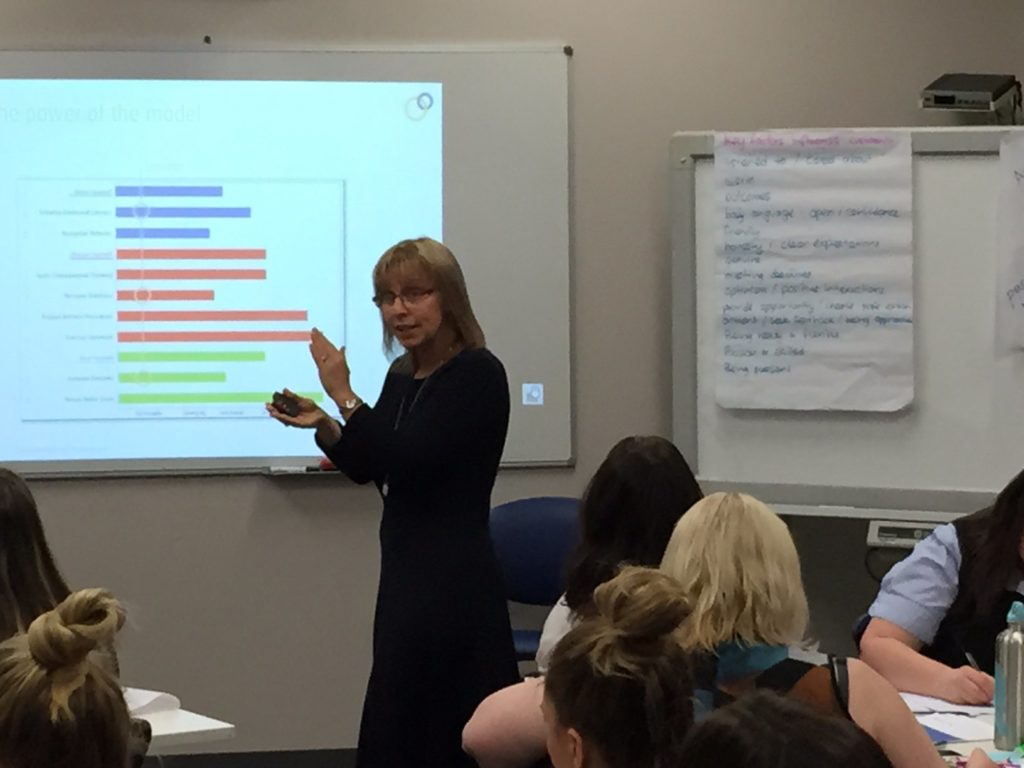Di quale tipo di supporto hanno bisogno le società per creare un cambiamento duraturo nella loro forza lavoro? Questa è una domanda alla quale Careerlink sta provando a rispondere con i suoi servizi.
Careerlink, un preferred partner Six Seconds ormai da tre anni, ha sede presso Adelaide, in Australia. Recentemente hanno ampliato il loro lavoro EQ negli Stati Uniti e in Asia. I fondatori John Dare e Angela Giacoumis stavano cercando uno strumento da poter utilizzare per misurare e sviluppare l’EQ, ricerca che li ha condotti verso Six Seconds.
Considerata la velocità con cui oggi avvengono i cambiamenti, stanno assistendo alla rapida e crescente trasformazione organizzativa delle aziende. A fronte di cambiamenti dirompenti, le loro proposte intendono supportare le aziende nella gestione dei dipendenti secondo logiche che conducono a maggiori vantaggi competitivi.
L’intervista prosegue in lingua inglese.

Six Seconds: What kind of clients do you serve?
 John: We work with a wide range of organizations, mostly large to mid-size companies across both private and public sectors.
John: We work with a wide range of organizations, mostly large to mid-size companies across both private and public sectors.
Six Seconds: It seems often that change comes from above, or outside an organization. How do you talk to these leaders about intrinsic motivation in this environment?
John: While Intrinsic Motivation sits in Self-Management (Choose Yourself), it is largely developed through clarity of purpose. In an organization huge lifts in employee engagement and motivation can be realized by aligning employees purpose to the organization’s purpose.
When speaking with leaders, this is not a difficult conversation; organizations need people that are self-motivated and driven for results. We know that Intrinsic Motivation and Optimism are two key competencies for top performers, especially in Sales and Service. They also impact drive, decision-making, influence and as a result…effectiveness. The direct correlation between EQ and performance also makes these conversations meaningful.
Six Seconds: Could you give an example of a client you’ve worked with using the Six Seconds tools and what the outcome was?
John: We provide Executive and High-potential employees coaching across a range of organization, the SEI provides the basis to start an inquiry about their areas for development. The outcomes have been amazing; people get significant value by gaining a higher level of self-awareness, and can continue to develop themselves after our coaching sessions end.
Six Seconds: The Six Seconds State of the Heart Report showed a reduction in EQ worldwide. What was your response?
John: It’s not surprising. In our workforce we see major issues around stress and people’s ability to  navigate through emotion. Most organizations are led on command and control structures with authoritative leadership, which doesn’t align well to the needs of millennial’s. Nor do they seem to be as effective with navigating the speed of change we are seeing. As a result, we see an increase in stress and mental health issues. There are statistics coming out of the U. S and Australia stating that 20-25 percent of our workforce are dealing with some kind of emotional issue, which is supported by increases in stress claims. This is costing billions of dollars and obviously impacting people’s wellbeing.
navigate through emotion. Most organizations are led on command and control structures with authoritative leadership, which doesn’t align well to the needs of millennial’s. Nor do they seem to be as effective with navigating the speed of change we are seeing. As a result, we see an increase in stress and mental health issues. There are statistics coming out of the U. S and Australia stating that 20-25 percent of our workforce are dealing with some kind of emotional issue, which is supported by increases in stress claims. This is costing billions of dollars and obviously impacting people’s wellbeing.
People are not used to how volatile, uncertain, complex and ambiguous (VUCA) the world has become. And it’s accelerating! This makes Six Seconds tools more important than ever.
Six Seconds: Will people be able to keep adapting as change speeds up, or is it just too fast?
John: I think that there are shifts that are starting to happen in organizations now. One example. We did primary research on our workforce, using the Six Seconds data, we compared EQ scores to performance data for 100 employees and analyzed correlations. There were some counter-intuitive results. These results indicate a need for a shift in the way we lead people.
As an example, the findings showed that people who have high optimism are late for work more often. Why? They feel like they have time and it won’t be a problem. If the leader comes down hard on them for being late, you’re going to likely diminish their optimism. Maybe reminding them about why our customers need us to be supporting them at that time might be a more effective approach.
Another finding showed that people with higher ability to navigate emotions left work early more often. Why? Their level of self awareness about their ability to navigate the stresses of the day are such that they know when it’s time for them to opt out and leave. Again, do you come down hard on them for the need to leave early, or do you engage them in a dialogue about what their challenges are and determine if they can be addressed. We might also consider having a place at work where people can go to distress, for example a meditation, exercise, or yoga room. Most leaders and organizations are not there yet., but many are and everyone seems keen to find a better way.
Six Seconds: Have you seen Where to Invade Next by Michael Moore? It shows a family owned clothing factory where people go home for a two-hour meal each day. They all seem quite happy!
John: Yes! There was something interesting in the State of the Heart report, which broke down level of EQ by industry. The tech industry was the lowest in EQ, and logistics and transportation the highest. If you think about how those industries do business, it says a lot about the reducing EQ levels. EQ is declining. Why? Because millennials are coming into our workforce having grown up with computers, and baby boomers who grew up doing things face to face, resulting in higher EQ, are retiring and leaving the workforce. This makes it essential to get EQ into our organizations.
Six Seconds: What are you looking forward to in your relationship with Six Seconds as a preferred partner?
John: Careerlink’s purpose is to bring out the greatness in organizations and people we work with and there is no better tool than Six Seconds to support this mission.
We are hoping to bring value to Six Seconds as we build our internal capabilities with the Six Seconds tools. If we are going to get to 1B people practicing EQ, we are going to have to think differently and continue to challenge ourselves, we are going to have to work together and leverage the unique strengths of everyone. We are looking forward to achieving this with Six Seconds.








